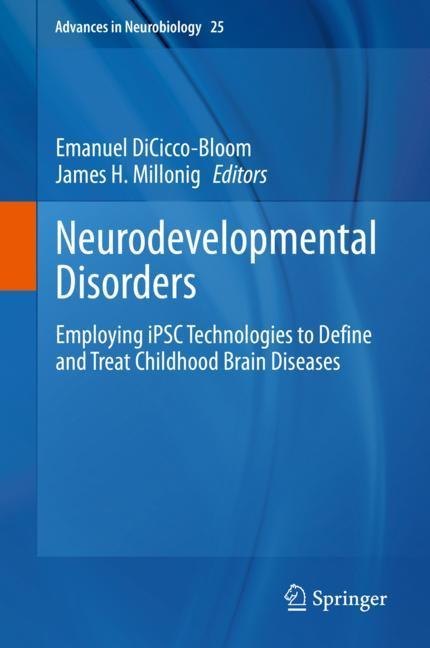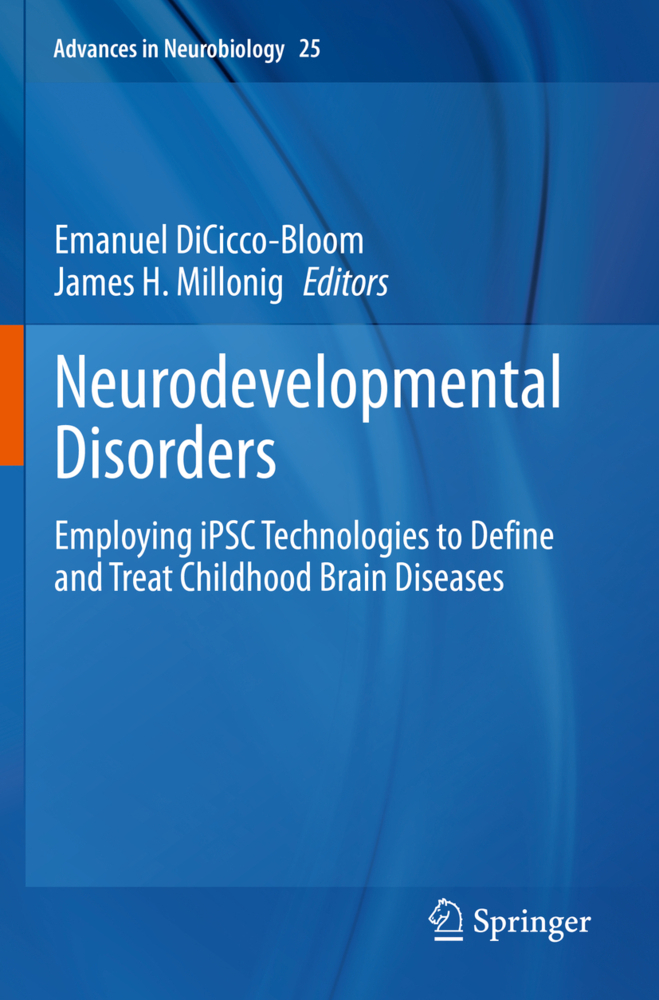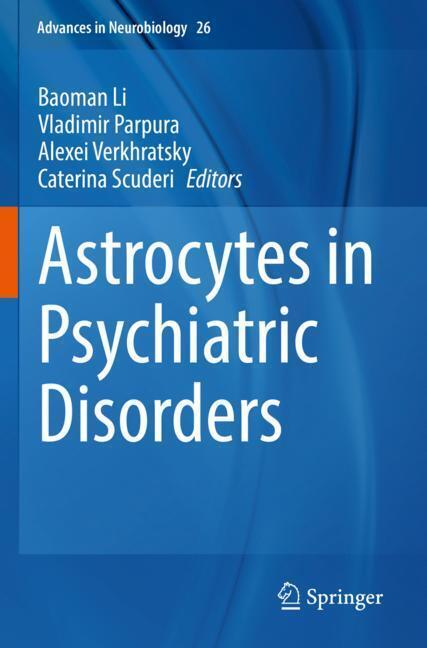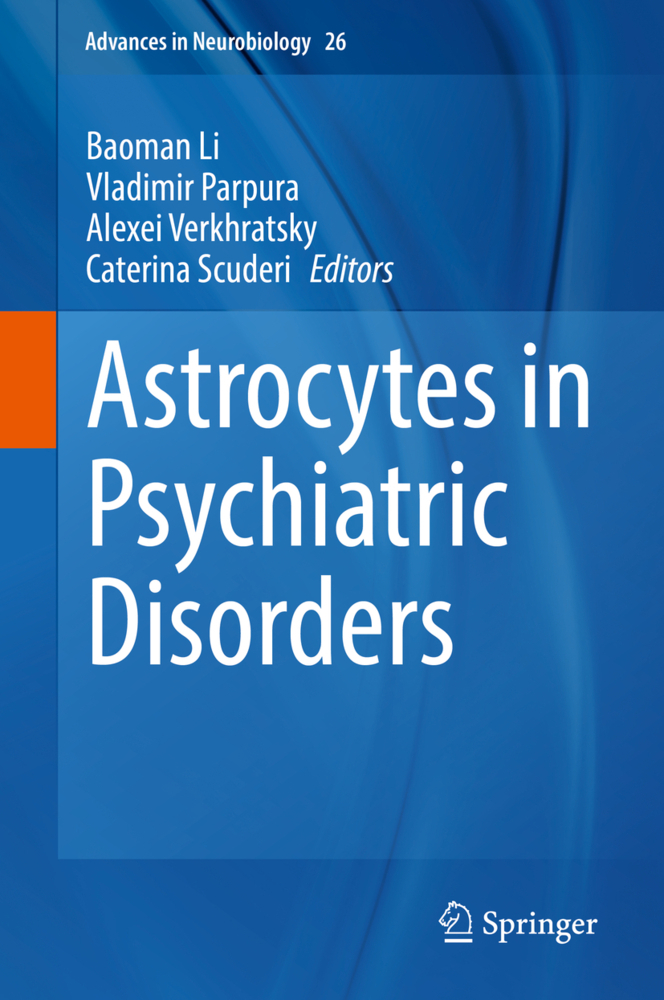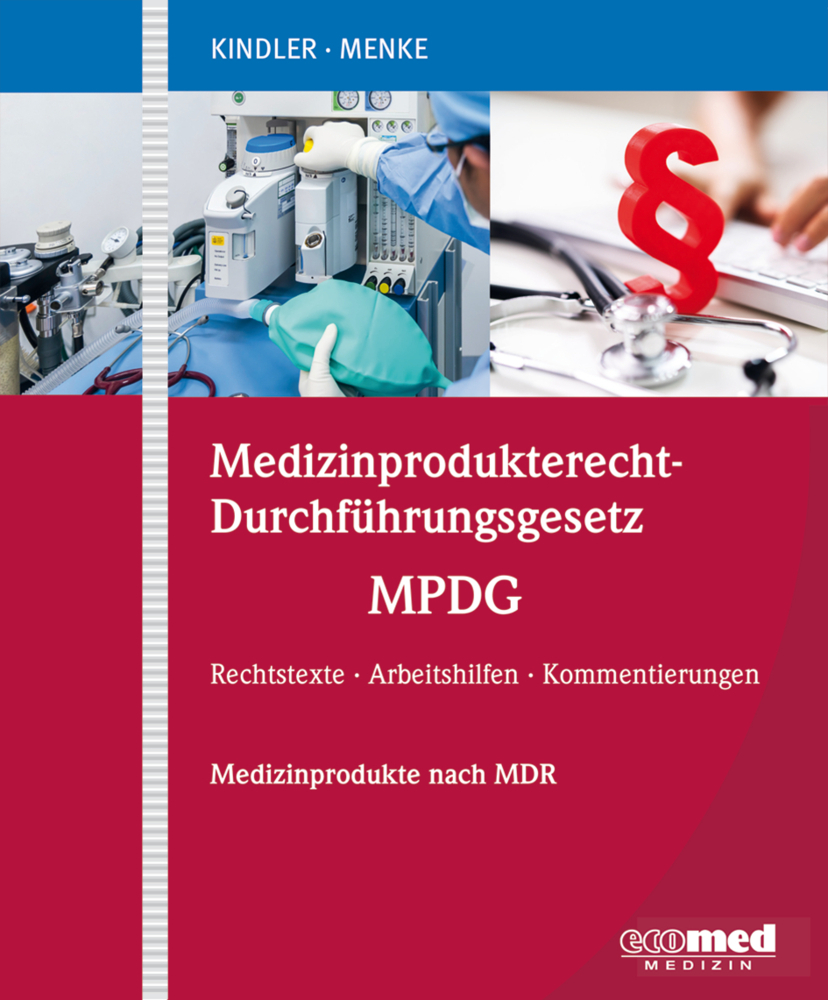Neurodevelopmental Disorders
Employing iPSC Technologies to Define and Treat Childhood Brain Diseases
This book contains a compendium of induced pluripotent stem cells (iPSCs) articles and reviews concerning state of the art technologies and how they are being applied to human neurodevelopmental disorders. With the establishment of effective technologies to produce iPSCs and their derivatives, like neural precursors, neurons, and glia, researchers have new platforms to study neurodevelopmental disorders. iPSC technology enables researchers to study how human neurons develop in individuals with neurodevelopmental disorders, providing an unparalleled opportunity to investigate their etiology. In turn, researchers have now begun to understand the underlying molecular and cellular pathways that contribute to human diseases. iPSCs technologies also provide an emerging tool for future translational studies and disease classification. The chapters will emphasize how among the diverse idiopathic and genetic disorders, there are common clinical as well as cellular and molecular phenotypes.
Emanuel DiCicco-Bloom, M.D. is Professor of Neuroscience and Cell Biology and Pediatrics (Child Neurology & Neurodevelopmental Disabilities) at Rutgers Robert Wood Johnson Medical School (RWJMS) in New Jersey and a member of graduate programs in Cell & Developmental Biology, Neuroscience, and Toxicology at Rutgers University. He graduated summa cum laude from Princeton University, received his M.D. from then Cornell University Medical College, and trained in Pediatrics and Neurology at New York Hospital-Cornell Medical Center, joining RWJMS in 1990.
Dr. DiCicco-Bloom has broad experience performing basic and translational research on neurodevelopmental disorders including animal models and human induced pluripotent stem cells (iPCSs). As an active child neurologist, his research focuses on defining molecular and cellular pathways that regulate production of neuronal cells (neurogenesis) during brain development, and how related abnormalities contribute to developmental disorders including autism. He investigates how growth signals, genetic factors, and environmental toxins impact cell proliferation, survival, and fate determination during brain development using rat and mouse neural stem cells in culture and in vivo, with a focus on the cerebral cortex, cerebellum, and hippocampus. To begin defining mechanisms that are more directly relevant to human disorders, recent collaborative studies with Co-Editor James H. Millonig, Ph.D. have focused on creating human induced neural stem cells (NPCs) from people with autism, to determine their neurobiological signatures. Significantly, by comparing NPCs from two forms of autism, including idiopathic and genetically defined (CNV 16p11.2 Deletion Syndrome), these studies reveal a common neurobiological phenotype consisting of reduced neural process outgrowth and cell migration in autism compared to control NPCs. Moreover dysregulation of the mTOR signaling pathway appears to be central to these phenotypes, as pathway manipulation both corrects autism deficits and recreates abnormalities in relevant controls. This new era of exploring neuropsychiatric conditions in human neurons may provide more relevant cellular and molecular pathways on which to target therapeutic interventions that may be 'personalized' to the needs of the specific individual.
Dr. DiCicco-Bloom has long served the autism scientific and advocacy communities, providing scientific expertise to federal agencies including NIH, DOD, NSF, and IACC, and disease advocacy organizations including National Alliance for Autism Research, Autism Science Foundation, Autism Speaks, Autism Tissue Program, Brain Canada, Rett Syndrome Foundation, and Simons Foundation. He Chaired the Scientific Program Committee of the 2008 International Meeting for Autism Research (IMFAR) meeting (London) and Co-Chaired 2010 (Philadelphia), and has long served the IMFAR Program Committee. For the Society for Neuroscience, he has served on many committees (PECC, GPA, Aud
Emanuel DiCicco-Bloom, M.D. is Professor of Neuroscience and Cell Biology and Pediatrics (Child Neurology & Neurodevelopmental Disabilities) at Rutgers Robert Wood Johnson Medical School (RWJMS) in New Jersey and a member of graduate programs in Cell & Developmental Biology, Neuroscience, and Toxicology at Rutgers University. He graduated summa cum laude from Princeton University, received his M.D. from then Cornell University Medical College, and trained in Pediatrics and Neurology at New York Hospital-Cornell Medical Center, joining RWJMS in 1990.
Dr. DiCicco-Bloom has broad experience performing basic and translational research on neurodevelopmental disorders including animal models and human induced pluripotent stem cells (iPCSs). As an active child neurologist, his research focuses on defining molecular and cellular pathways that regulate production of neuronal cells (neurogenesis) during brain development, and how related abnormalities contribute to developmental disorders including autism. He investigates how growth signals, genetic factors, and environmental toxins impact cell proliferation, survival, and fate determination during brain development using rat and mouse neural stem cells in culture and in vivo, with a focus on the cerebral cortex, cerebellum, and hippocampus. To begin defining mechanisms that are more directly relevant to human disorders, recent collaborative studies with Co-Editor James H. Millonig, Ph.D. have focused on creating human induced neural stem cells (NPCs) from people with autism, to determine their neurobiological signatures. Significantly, by comparing NPCs from two forms of autism, including idiopathic and genetically defined (CNV 16p11.2 Deletion Syndrome), these studies reveal a common neurobiological phenotype consisting of reduced neural process outgrowth and cell migration in autism compared to control NPCs. Moreover dysregulation of the mTOR signaling pathway appears to be central to these phenotypes, as pathway manipulation both corrects autism deficits and recreates abnormalities in relevant controls. This new era of exploring neuropsychiatric conditions in human neurons may provide more relevant cellular and molecular pathways on which to target therapeutic interventions that may be 'personalized' to the needs of the specific individual.
Dr. DiCicco-Bloom has long served the autism scientific and advocacy communities, providing scientific expertise to federal agencies including NIH, DOD, NSF, and IACC, and disease advocacy organizations including National Alliance for Autism Research, Autism Science Foundation, Autism Speaks, Autism Tissue Program, Brain Canada, Rett Syndrome Foundation, and Simons Foundation. He Chaired the Scientific Program Committee of the 2008 International Meeting for Autism Research (IMFAR) meeting (London) and Co-Chaired 2010 (Philadelphia), and has long served the IMFAR Program Committee. For the Society for Neuroscience, he has served on many committees (PECC, GPA, Aud
DiCicco-Bloom, Emanuel
Millonig, James H.
| ISBN | 9783030454937 |
|---|---|
| Artikelnummer | 9783030454937 |
| Medientyp | E-Book - PDF |
| Copyrightjahr | 2020 |
| Verlag | Springer-Verlag |
| Umfang | 305 Seiten |
| Sprache | Englisch |
| Kopierschutz | Digitales Wasserzeichen |

